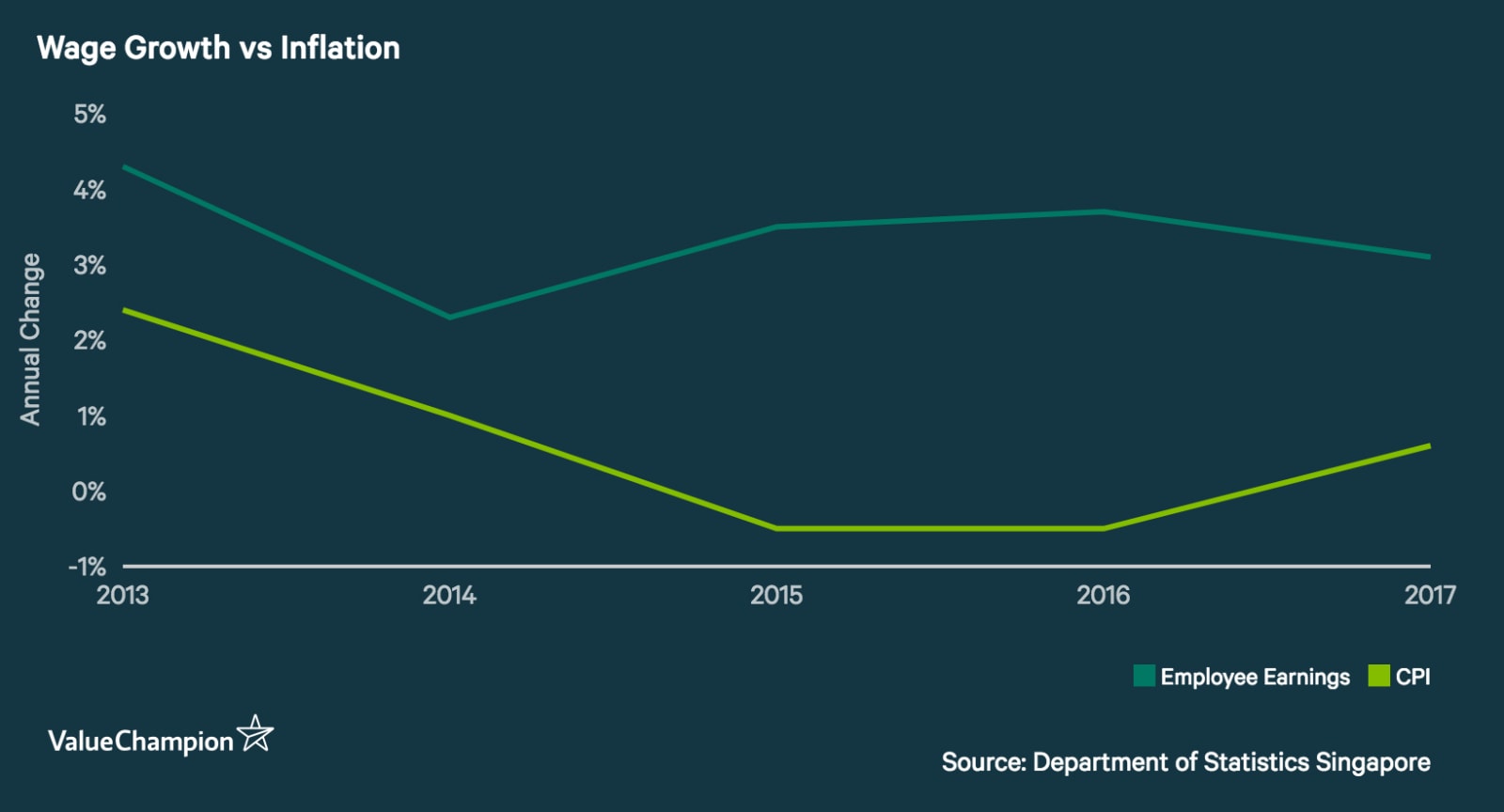6 Ways for SMEs to Adapt to Rising Wages in Singapore
Singapore is widely known as an expensive place to live and run a business. For the fifth consecutive year, Singapore was named as the world's most expensive city by The Economist. A high cost of living is typically correlated with high salary expectations, which subsequently increases the cost of running a business. Over the past five years, wage growth has consistently outpaced consumer prices, also known as inflation. Increasing wage costs cut into businesses margins and decreases their net working capital, or available cash to cover daily business costs (e.g. salaries, rent, utilities, etc.). In this article, we highlight ways for SMEs to increase productivity, manage high operating costs and continue growing.

Automate Simple Tasks
To combat shrinking margins due to increasing wage costs SMEs must increase productivity. This can be achieved in a number of ways. First, some businesses may be able to decrease the cost of their employees by automating tasks. For instance, accounting, online customer service and administrative tasks can often be easily automated, saving you time and money. Businesses may also be able to enhance the productivity of its company by training their employees.
Engage Employees
SMEs should make their employees feel engaged in order to boost their individual productivity. Gallup found that engaged workers are significantly more productive, less likely to be absent and less likely to leave their jobs. Reducing employee churn is crucial to reducing operating costs, since needing to continuously train new staff can be a huge productivity drain for management. One method of engagement is to invest in your employees' education or training. This can provide increased productivity for each employee, which can subsequently improve your margins. Additionally, engaging your employees does not need to be an expensive affair. While free food and parties can be fun, you can help them feel more valued by asking them about their career goals and general job satisfaction. These type of interactions can build camaraderie, which has been found to be a greater predictor of job satisfaction than a higher salary.
Wage Payout Scheme
In order to assist local businesses to deal with higher wages, the Government has continued its Wage Credit Scheme (WCS). The Ministry of Finance reported that WCS paid 20% of qualifying salary increases in 2015 - 2017 for Singaporeans who earn monthly wages of less than S$4,000. In 2018, 90,000 employers will receive more than S$800 million, 71% of which will be distributed to SMEs. Employers need not apply for WCS; instead the Inland Revenue Authority of Singapore (IRAS) will notify eligible businesses by March 31 of each year.
Unfortunately for SMEs, the WCS is set to be slightly less generous starting in 2019, with government contributions set to decrease from 20% of qualifying salary increases to 10% by 2020. It is also important to note that the payout from the WCS to the business is considered taxable revenue.
Other Government Support
In an effort to increase the access of financial services to SMEs, Singapore's government has partnered with banks to encourage lending to small businesses. The government has agreed to cover half of the default risk associated with these loans, in hopes of encouraging lenders to provide loans to an increased number of local businesses. In total, the program is attempting to provide S$2 billion to local SMEs. There are a number of loans offered through this program including micro loans specifically designed for SMEs.
Working Capital Loans
Rising costs can be intimidating for small businesses, even those that are growing quickly because they need to pay higher amounts can squeeze a company's cash balances. SMEs that require short-term financing to cover their rising operating expenses while cash is tight could consider applying for working capital loans. These loans allow businesses to meet their short-term obligations by adding an injection of cash without the burden of a large business term loan. However, working capital loans tend to charge greater interest rates than long-term or case-specific loans. Additionally, many small businesses often find it difficult to obtain loans from banks. In fact, a recent study found that 4 out of 5 SMEs do not qualify for business financing.
Other Market Solutions
Due to the gap in financing for small businesses in Singapore, a number of crowdfunding platforms have emerged as alternative lenders compared to banks. Crowdfunding lending platforms allow businesses to borrow from large groups of individuals. These platforms typically charge borrowers greater interest rates than banks in order to incentivize individual investors to contribute to funding campaigns. However, these platforms offer attractive features including flexible funding amounts, repayment schedules, and interest rate schedules.
